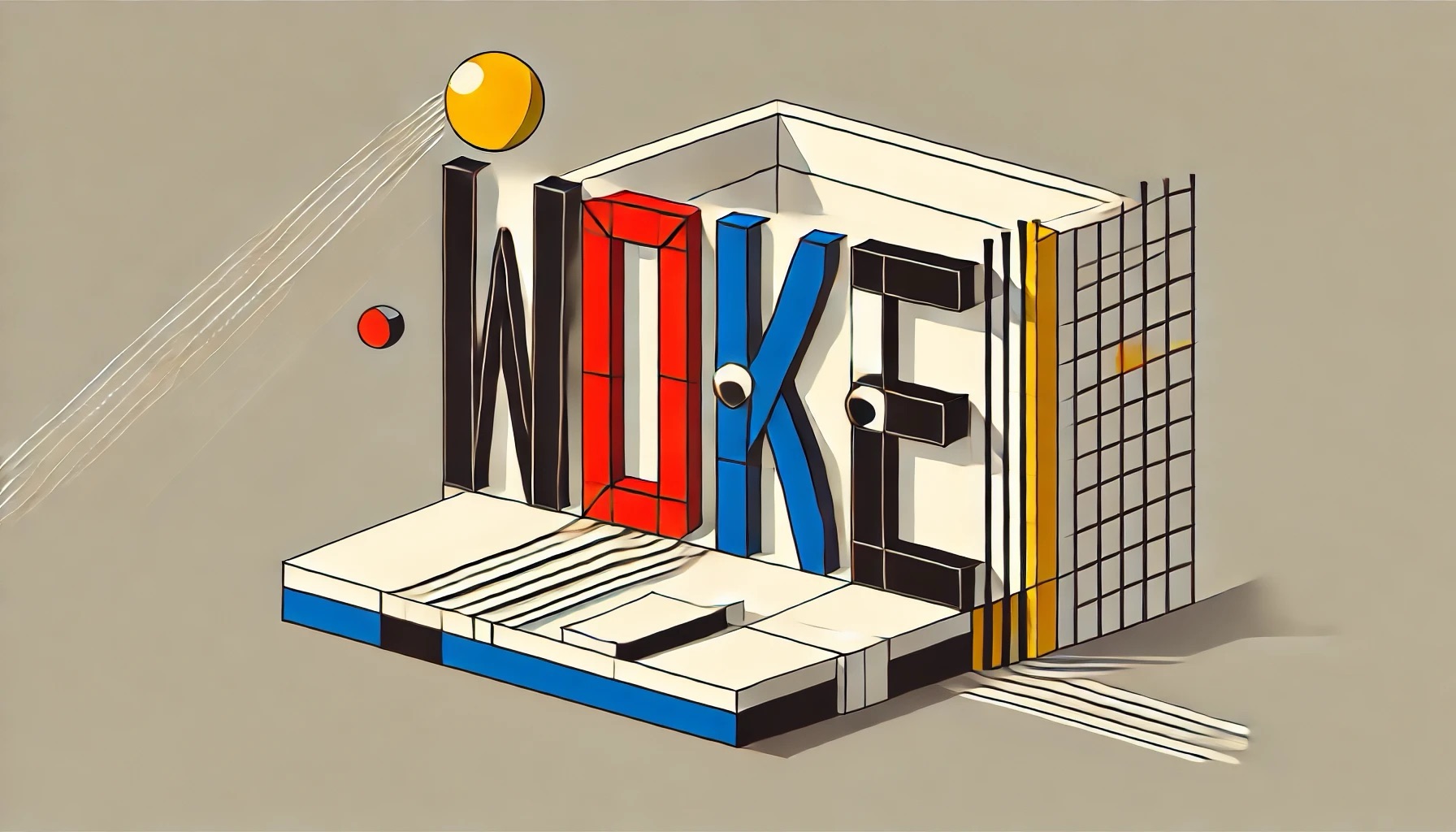In recent years, the term “woke” has become a ubiquitous part of the cultural and political lexicon, often evoking strong reactions and sparking heated debates. But the word “woke” has a rich history that extends far beyond its current usage. Originally rooted in African American Vernacular English (AAVE), “woke” has evolved over the decades, shifting from a term of cultural consciousness to a symbol of social justice awareness, and more recently, to a controversial term in political discourse.
This article explores where the term “woke” came from, how it has evolved over the years, and the complicated role it plays in today’s society.
The Origins of “Woke” in African American Vernacular English
The word “woke” first appeared in the lexicon of African American Vernacular English (AAVE) as a straightforward term meaning “awake” or “conscious.” However, as with many words in AAVE, “woke” carried additional connotations beyond its literal meaning. In the early 20th century, “woke” began to be used metaphorically to describe a heightened awareness of social and political issues, particularly those related to race and inequality.
Early Documented Uses
One of the earliest known uses of “woke” in this metaphorical sense can be traced back to the 1930s. The phrase “stay woke” was used in the lyrics of a 1938 song titled “Scottsboro Boys” by blues musician Huddie Ledbetter, better known as Lead Belly. The song, which addressed the infamous Scottsboro Boys case—where nine Black teenagers were falsely accused of raping two white women in Alabama—contained the lyrics, “I advise everybody to be a little careful when they go along through there—best stay woke, keep their eyes open.” Here, “stay woke” was a cautionary phrase, urging African Americans to be vigilant and aware of the injustices and dangers that they faced in a racially segregated society.
The use of “woke” as a term of political and social consciousness continued to gain traction in African American communities throughout the mid-20th century. In a 1962 article for The New York Times, titled “If You’re Woke You Dig It,” author William Melvin Kelley explored the nuances of African American slang and its role in cultural expression. Kelley’s article is one of the earliest instances of “woke” being documented in mainstream media, signaling its growing significance within Black culture.
The 1960s and the Civil Rights Movement
The 1960s was a pivotal decade for civil rights in the United States, and during this time, “woke” became increasingly associated with the fight for racial equality. The term was used by activists and community leaders to encourage African Americans to remain alert to the injustices they faced, to question the status quo, and to challenge systemic racism. “Woke” was not just about being aware of discrimination; it was about being actively engaged in the struggle for justice.
This period also saw the rise of the Black Power movement, which emphasized self-determination, racial pride, and a more radical approach to achieving civil rights. Within this context, being “woke” meant being attuned to the ways in which racism and oppression were woven into the fabric of American society and being committed to fighting against it.
“Woke” in the 21st Century: From Grassroots Activism to Social Media
As the decades passed, the use of “woke” persisted within African American communities, though it remained relatively obscure in mainstream culture. However, the advent of the internet and social media in the early 2000s provided a new platform for the dissemination of ideas and language, leading to the resurgence and popularization of “woke.”
The Rise of Social Media and the Black Lives Matter Movement
The Black Lives Matter (BLM) movement, which emerged in response to the 2013 acquittal of George Zimmerman in the shooting death of Trayvon Martin, played a significant role in bringing “woke” into the broader cultural conversation. As BLM activists used social media platforms like Twitter, Facebook, and Instagram to organize protests, share information, and raise awareness about police brutality and systemic racism, the term “woke” became a shorthand for social justice consciousness.
On platforms like Twitter, the hashtag #StayWoke became a rallying cry for those advocating for racial justice. It was used to call attention to incidents of police violence, racial profiling, and other forms of systemic racism. In this context, “woke” was a call to action, urging people to recognize the pervasive nature of racial injustice and to remain vigilant in the fight for equality.
The popularity of the term among activists and on social media led to its widespread adoption by younger generations, particularly within progressive circles. “Woke” came to signify a broad awareness of social issues, including not only racial injustice but also gender inequality, LGBTQ+ rights, environmental justice, and other progressive causes. To be “woke” was to be informed, conscious, and actively engaged in addressing the injustices in society.
Mainstream Adoption and Commercialization
As “woke” gained traction in activist circles and on social media, it began to permeate mainstream culture. Celebrities, politicians, and corporations started to use the term, often as a way to signal their alignment with progressive values. The concept of “wokeness” was increasingly seen as a marker of social awareness and moral virtue.
However, this mainstream adoption also led to the commercialization and, in some cases, the dilution of the term’s original meaning. Companies began using “woke” rhetoric in their marketing campaigns, often without a genuine commitment to the causes they were promoting. This phenomenon, sometimes referred to as “woke-washing,” involved brands co-opting social justice language to appeal to consumers while failing to take meaningful action to address the issues at hand.
As “woke” became more widely used, it also began to face backlash. Critics argued that the term had become overused, losing its potency and being reduced to a buzzword. Others claimed that “wokeness” had been hijacked by performative activism, where individuals and organizations expressed superficial support for social justice issues without engaging in substantive efforts to create change.
The Politicization of “Woke”: A Contested Term in the Culture Wars
In recent years, “woke” has taken on an increasingly politicized meaning, particularly in the context of the so-called “culture wars” in the United States and other Western countries. The term has been adopted by both proponents and critics of progressive social movements, leading to a complex and often contentious discourse.
“Woke” as a Pejorative Term
One of the most significant developments in the evolution of “woke” is its use as a pejorative term, particularly by conservative commentators and politicians. For critics on the right, “wokeness” has come to symbolize what they see as the excesses of progressive ideology—specifically, the perceived overemphasis on identity politics, political correctness, and cancel culture.
In this context, “woke” is often used derisively to describe individuals or institutions that are perceived as excessively concerned with social justice issues, sometimes to the point of absurdity. Critics argue that “wokeness” promotes division and stifles free speech, and they use the term to mock or dismiss efforts to address social inequalities. For example, conservative media outlets frequently use “woke” as a catch-all label for initiatives related to diversity, equity, and inclusion, often portraying them as misguided or harmful.
The Defense of “Woke”
On the other hand, supporters of progressive causes continue to embrace “woke” as a positive and necessary mindset. For them, being “woke” means being aware of the systemic injustices that persist in society and being committed to challenging and dismantling them. In this sense, “wokeness” is seen as an essential aspect of social and political consciousness, one that is critical for creating a more just and equitable world.
Proponents argue that the backlash against “woke” is rooted in a resistance to change and a desire to maintain the status quo. They contend that critiques of “wokeness” are often attempts to delegitimize and undermine the efforts of marginalized communities to assert their rights and demand justice.
Moreover, many advocates for social justice point out that the original meaning of “woke”—as a call to remain vigilant against injustice—remains as relevant today as it was in the early 20th century. They argue that the ongoing struggles against racism, sexism, homophobia, and other forms of oppression require individuals and institutions to stay “woke” and continue pushing for progress.
The Global Spread of “Woke”
The discourse around “woke” has not been limited to the United States. The term has spread to other countries, where it has been both adopted and adapted to local contexts. In the United Kingdom, for example, “woke” has become a focal point in debates over issues such as immigration, free speech, and the legacy of colonialism. Similarly, in countries like Australia and Canada, “woke” has been used in discussions about indigenous rights, environmental activism, and other social justice issues.
In many of these contexts, the term has followed a similar trajectory as in the United States, with “woke” being embraced by some as a necessary stance and criticized by others as a sign of ideological overreach.
The Future of “Woke”
The future of the term “woke” is intrinsically tied to society’s ongoing dialogue around social justice and cultural identity. As a word that originated within African American Vernacular English to signify awareness of systemic injustices, “woke” has transformed into a global symbol of advocacy and activism. However, its meaning has also become layered with controversy, often weaponized in political and cultural debates. To some, it represents a commitment to progress and equity, while to others, it has become a catchall critique of perceived overreach in progressive movements. This duality underscores the broader tensions in contemporary discourse, where terms can be both empowering and divisive depending on their usage and context.
Moving forward, the trajectory of “woke” will likely reflect society’s ability to navigate the balance between addressing historical inequities and fostering open, inclusive dialogue. As language evolves, so too will the perception of terms like “woke,” influenced by generational shifts, cultural trends, and political ideologies. Whether the term retains its original spirit of awareness or continues to be reshaped by broader societal debates, its journey highlights the dynamic nature of language as a mirror of social change and a battleground for competing visions of justice and identity.




